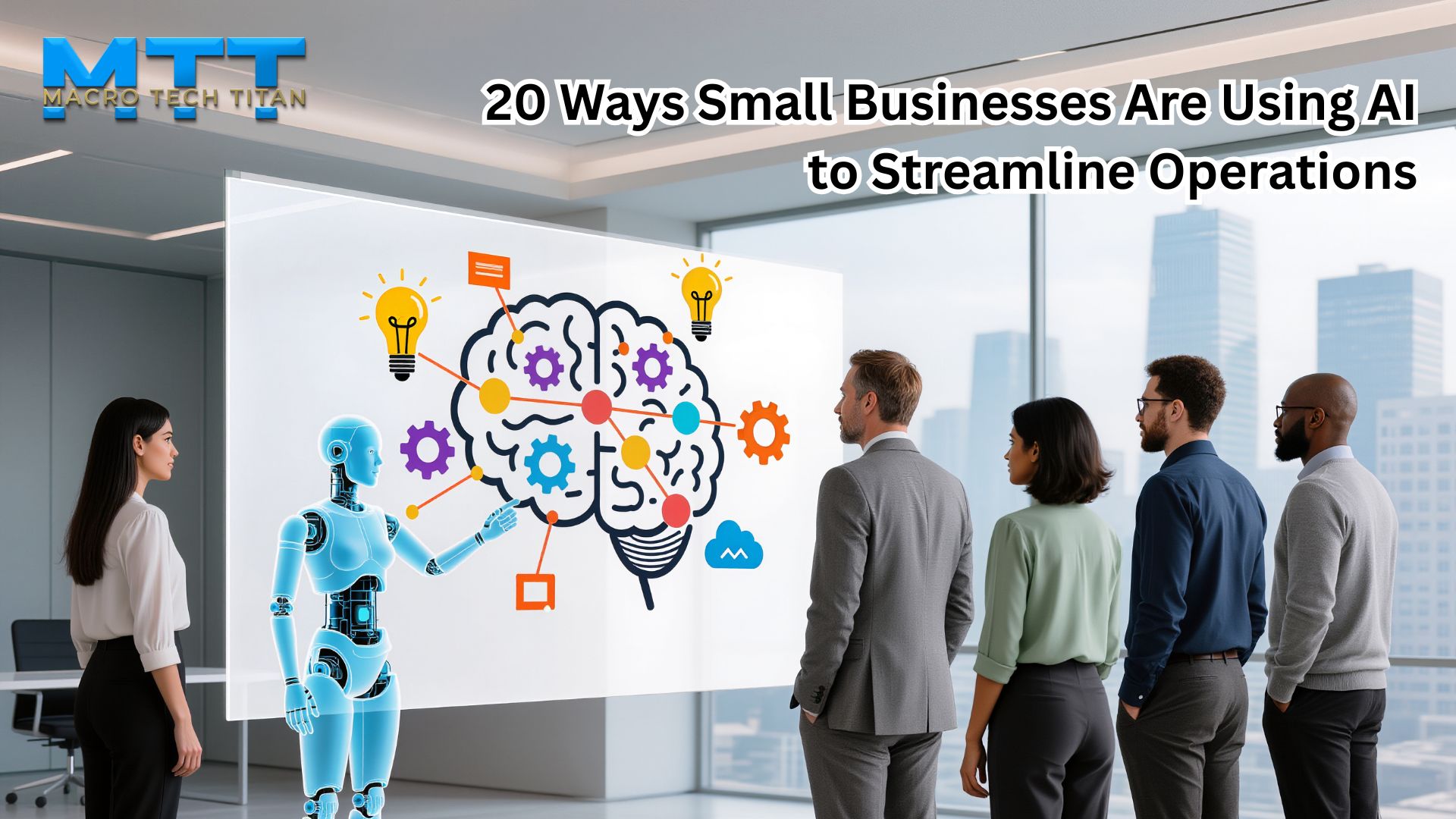Artificial Intelligence (AI) is no longer reserved for tech giants.
Today, small and medium-sized businesses (SMBs) are using affordable AI tools to save time, reduce costs, and improve productivity across every department — from marketing to HR.
Here are 20 powerful and practical ways small businesses are using AI to work smarter and scale faster.
Get Tips like this and more in our app.macrotechtitan.com
1–5: AI for Smarter Marketing & Customer Engagement
-
Automated Email Campaigns
AI tools like Mailchimp or HubSpot segment customers and send personalized messages automatically, increasing engagement rates. -
Content Creation & Copywriting
Platforms like Jasper and ChatGPT generate blog posts, ads, and product descriptions in minutes. -
Social Media Management
AI tools such as Buffer or Hootsuite analyze performance and recommend the best posting times and content types. -
Customer Segmentation
Machine learning algorithms analyze buying behavior to target the right audience more precisely. -
Ad Optimization
AI-driven ad platforms like Meta Ads AI and Google Performance Max automatically adjust bids and creatives for maximum ROI.
6–10: AI for Data, Finance & Operations
-
Bookkeeping & Expense Tracking
AI accounting tools like QuickBooks or Xero categorize transactions, reconcile bank feeds, and predict cash flow. -
Inventory Management
AI-based inventory systems forecast stock needs, reducing overstock or shortages. -
Demand Forecasting
Predictive analytics helps small retailers and manufacturers plan production and sales strategies. -
Automated Reporting
Tools like Zoho Analytics and Tableau AI summarize business data into visual dashboards. -
Invoice Processing & Payment Reminders
AI assistants automatically create, send, and follow up on unpaid invoices, improving cash flow.
11–15: AI for Customer Support & Sales
-
AI Chatbots
Chatbots like Tidio or Intercom handle FAQs, support tickets, and lead capture 24/7. -
Voice Assistants for Sales Calls
AI-powered call assistants help sales teams record, summarize, and analyze customer calls. -
Lead Scoring
AI CRM systems like Salesforce Einstein rank leads based on purchase intent, helping sales teams prioritize efforts. -
Personalized Recommendations
E-commerce sites use AI to suggest relevant products, boosting sales and customer satisfaction. -
Sentiment Analysis
AI monitors customer reviews and feedback to understand brand perception and improve service quality.
16–20: AI for HR, Productivity & Strategic Decisions
-
Automated Hiring & Resume Screening
AI recruiting platforms scan resumes, shortlist candidates, and even assess skills via chatbots. -
Employee Performance Tracking
AI analytics measure performance metrics and suggest personalized training. -
Smart Scheduling & Time Management
Tools like Clockwise or Reclaim.ai optimize team calendars and meeting schedules. -
Cybersecurity & Fraud Detection
AI security tools detect unusual activities, helping small businesses prevent data breaches affordably. -
Decision Intelligence
AI dashboards combine sales, marketing, and financial data to give actionable insights — helping owners make informed, faster decisions.
Get Tips like this and more in our app.macrotechtitan.com
Conclusion
AI is transforming how small businesses operate — making automation, data-driven insights, and personalized marketing accessible to all.
By integrating even a few AI tools, small business owners can:
-
Save hours of manual work each week
-
Improve accuracy in operations
-
Increase profits and scalability
The key is to start small, automate strategically, and grow gradually with the help of AI.
Discover more from Macro Tech Titan Blog
Subscribe to get the latest posts sent to your email.



